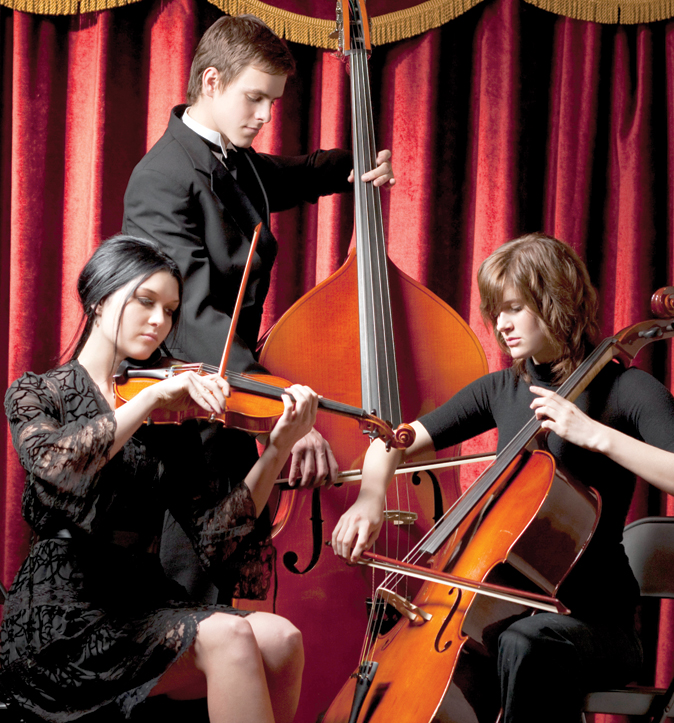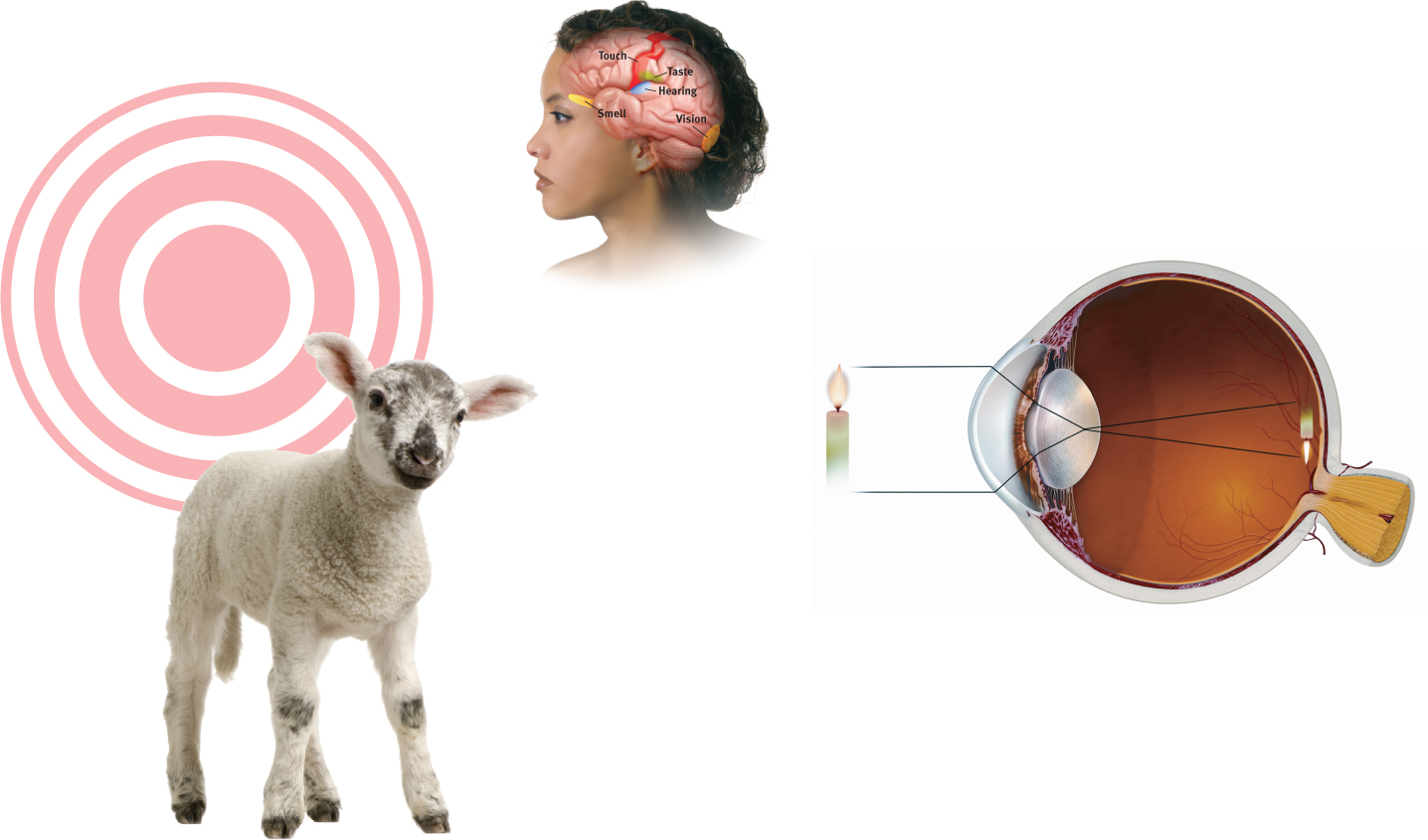132


Basic Principles of Sensation and Perception- From Outer Energy to Inner Brain Activity
- Thresholds
- THINKING CRITICALLY ABOUT: Can Subliminal
Messages Control Our Behavior? - Sensory Adaptation
- Perceptual Set
- Context Effects

Vision- Light Energy: From the Environment Into the Brain
- The Eye
- Visual Information Processing
- Color Vision
- Visual Organization
- Visual Interpretation

The Nonvisual Senses- Hearing
- Touch
- Taste
- Smell
- Body Position and Movement

Sensory Interaction- THINKING CRITICALLY ABOUT: ESP—Perception
Without Sensation?
- THINKING CRITICALLY ABOUT: ESP—Perception
| 5 | Sensation and Perception |

|
133

My friend, Heather Sellers, an acclaimed writer and teacher, cannot recognize faces. Her vision is perfect, but her perception is not. In her book, You Don’t Look Like Anyone I Know (2010), she tells of awkward moments resulting from her lifelong prosopagnosia—face blindness.
In college…I returned from the bathroom and plunked myself down in the wrong booth, facing the wrong man. I remained unaware he was not my date even as my date (a stranger to me) accosted Wrong Booth Guy, and then stormed out…. I do not recognize myself in photos or videos. I can’t recognize my stepsons in the soccer pick-up line; I failed to determine which husband was mine at a party, in the mall, at the market.
People sometimes see Sellers as snobby or cold. “Why did you walk past me?” a neighbor might later ask. Hoping to avoid offending others, Sellers sometimes fakes recognition. She smiles at people she passes, in case she knows them. She may pretend to know the person with whom she is talking. But there is an upside to these perception failures. When she runs into someone who previously irritated her, she typically feels no ill will. She doesn’t recognize the person.

134
Unlike Sellers, most of us have an area on the underside of our brain’s right hemisphere that helps us recognize a familiar human face as soon as we detect it—in only one-seventh of a second (Jacques & Rossion, 2006). This ability is an example of a broader principle. Nature’s sensory gifts enable each animal to obtain essential information. Some examples:
- Frogs, which feed on flying insects, have cells in their eyes that fire only in response to small, dark, moving objects. A frog could starve to death knee-deep in motionless flies. But let one zoom by and the frog’s “bug detector” cells snap awake.
- Male silkworm moths’ odor receptors can detect one-billionth of an ounce of sex attractant per second released by a female one mile away. That is why there continue to be silkworms.
“Time’s fun when you’re having flies.”
Kermit the Frog
- Human ears are most sensitive to sound frequencies that include human voices, especially a baby’s cry.
In this chapter, we’ll look more closely at what psychologists have learned about how we sense and perceive the world around us. We begin with some basic principles.